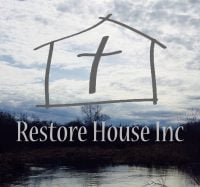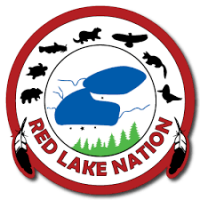Sprucewoods West
Drug Rehab Center in Bemidji, Minnesota
Sprucewoods West, located in Bemidji, Minnesota, is an accredited drug and alcohol rehabilitation facility that offers a range of levels of care such as residential, inpatient and outpatient services along with evidence-based therapies like CBT and holistic approaches like yoga and art therapy to help individuals suffering from addiction, alcoholism, mental health issues and substance abuse while providing 24/7 medical support.
About Sprucewoods West in Minnesota
Sprucewoods West, nestled in Bemidji, Minnesota, is not just a private foster care home but a beacon of hope for those seeking sobriety. It stands out as a Certified Corporate Adult Foster Care home, providing round-the-clock supervision and supportive services. Unique in its approach, Sprucewoods West extends its caring hand to individuals requiring long or short-term care within a residential setting.
- Certified and Compassionate Care: Sprucewoods West is recognized for its commitment to quality, holding a state license that underscores its high standards.
- Comprehensive Support Services: Offering 24/7 support, this facility ensures that individuals have access to the necessary services, both within and outside its premises.
- Flexible Treatment Options: Catering to diverse needs, Sprucewoods West facilitates access to external services, supporting personal growth and independence.
Accredited by a state license, Sprucewoods West is affiliated with Thrive Behavioral Network and accepts private health insurance, making its comprehensive treatment programs accessible to many. The facility's dedication to offering a range of care levels, from residential to outpatient programs, reflects its commitment to tailoring treatment to individual needs.
Sprucewoods West addresses a spectrum of addictions and issues, including drug addiction, alcoholism, and mental health challenges, through residential, inpatient, and outpatient programs. These varied levels of care, coupled with intensive therapy and counseling, support individuals in their journey toward lasting sobriety and personal independence.
Genders
Ages
Modality
Additional
Accreditations
State License
Conditions and Issues Treated
It’s not easy getting sober on one’s own, or even going to rehab and escaping the grasp of addiction by oneself. Substance abuse treatment gives addicts a place to stay sober while learning what it takes to quit for good. They will learn from others about what works and what doesn’t work with remaining drug-free.
Treatment centers such as Sprucewoods West focus on the needs of individual addicts to heal them. There is a combination of physical and mental therapies that treat the root cause of the addiction, whether it be family problems, stress, or past traumatic events.
The final benefit of substance abuse treatment is introducing new people who can help in your recovery after you leave Sprucewoods West. Through group therapy sessions with other addicts and attending support meetings once a day, a person will learn how to interact with others and cope with cravings. This is a chance for you to rebuild your social circle healthily after you leave treatment.
Levels of Care Offered
This center offers a variety of custom treatment tailored to individual recovery. Currently available are Inpatient, Outpatient, Residential, with additional therapies available as listed below.
Individuals who are suffering from severe addiction or have a high risk for dangerous health concerns are often recommended to receive inpatient treatment.
Choosing to enter an inpatient treatment program is beneficial for people who are suffering from severe addiction, or who have a high risk for dangerous health concerns.
Inpatient treatment is beneficial for:
- People who have a history of severe withdrawal.
- People who have attempted to overcome addiction on their own without success.
- People who have a history of relapse, or have recently relapsed.
- People at risk for drug overdose or withdrawal-related complications.
- People with medical conditions that are worsened by drug or alcohol use.
Outpatient treatment is considered the lower intensity level of addiction treatment. It’s ideal for early phase addiction or lower intensity addictions. It may include weekly sessions instead of daily. It may include weekly sessions instead of daily. Peer group support, 12-step programs, and individual counseling may still be involved but at a lesser frequency than an intensive outpatient program. It is a good choice for someone who doesn’t need to go through a medically supervised detox and who has a supportive home environment. It requires motivation and dedication to commit to the program without constant monitoring.
Residential treatment programs are those that offer housing and meals in addition to substance abuse treatment. Rehab facilities that offer residential treatment allow patients to focus solely on recovery, in an environment totally separate from their lives. Some rehab centers specialize in short-term residential treatment (a few days to a week or two), while others solely provide treatment on a long-term basis (several weeks to months). Some offer both, and tailor treatment to the patient’s individual requirements.
Therapies & Programs
Individual therapy involves one-on-one sessions between the patient and therapist. It provides patients with a safe environment to openly discuss personal and sensitive issues with the therapist. They find the therapist as someone they can trust. Individual therapy aims to identify the core issues that would have led the patient to substance abuse and address them effectively. The therapist can develop patient-specific customized solutions through individual therapy, which aids speedier recovery.
Family therapy is a group problem-solving that aims to improve communication and relationships between the addict, their family, and sometimes friends. The main goal of family therapy for drug addiction is to create an environment where communication can occur without judgment, hostility, or blame. The therapist is with the family as they learn to communicate differently, especially with the addict when s/he is using. The family can learn to reduce their enabling behavior or rally together and support each other during tough times.
An addict’s family can play a vital part in helping them to avoid relapse because they can spot the warning signs and help them get back on track before it becomes too much of a problem. Family therapy is one of the most effective ways to help addicts stay on the path to long-term sobriety. When a drug addict decides that they want to try and get sober, it takes the support of every person they love to succeed. It can be incredibly difficult for loved ones to watch an addict go through the pain and suffering of withdrawal, but by being there with them and supporting them, they can help to make sure that the addiction never returns.
Groups typically involve meetings with other recovering addicts who can relate to one another’s experiences. They might meet in person or online and typically focus on the process of staying sober rather than overcoming a specific addiction.
In these groups managed by Sprucewoods West, addicts can build a sense of community and develop strong emotional connections with others who understand what they are going through. These beneficial relationships can help addicts overcome their cravings and prevent relapse at any point during the recovery process.
Since addiction is a chronic physical and mental illness, addicts need to learn as many life skills as possible. Many drug treatment centers offer life skills activities as part of their addiction recovery programs. Examples include cooking classes, employment training, resume writing seminars, parenting classes, and computer training. Life skills activities help addicts find employment, take care of their families, and give back to the community.
The goal of medical nutrition therapy for drug and alcohol addiction is to help patients avoid “trigger” foods. For example, someone who craves alcohol may be addicted to sugar. Making sure this person eats a balanced diet with recommended amounts of protein, vegetables, and fruit can help manage urges to drink.
Nicotine replacement therapy treats nicotine addiction using external sources of nicotine, such as patches or gum to substitute for nicotine. This allows people trying to quit smoking to get their desired dose of nicotine without actually having to smoke cigarettes. The idea behind NRT is that by providing smokers with nicotine in forms that are not cigarettes, they may be more likely to quit smoking.
NRT has been available for many years now, and there is a wealth of evidence that shows that it helps people trying to quit smoking. There are several different types of NRT devices on the market now. Patients interested in quitting smoking should talk to their doctors about the best kind of NRT for them.
Patient Experience
Experiential Therapy at Sprucewoods West
Experiential Therapy teaches people how to think differently about their lives and change their emotions by changing their behavior. This type of treatment is accomplished with various activities that may involve acting, props, arts and crafts, animal care, or other tools that may be effective.
This therapy aims for patients to release suppressed thoughts that cause bad feelings and drug addiction. Role-playing, arts and crafts, music, animal care, rock climbing, etc., are some of the activities used in this therapy. Gradually an individual will feel calmer and more loving which will change their perception positively. In addition to treating drug addiction, experiential therapy is beneficial for different behavioral and eating disorders.
Fitness Therapy
Another unique benefit of addiction treatment services is fitness therapy. In addition to being therapeutic in its own right, an exercise regiment can support a recovering addict’s sobriety by:
- Encouraging healthy eating and exercise habits to really get the body back into good working order
- Providing a distraction from cravings and underlying psychological issues that could lead to relapse
- Gaining a sense of accomplishment from completing physical challenges that further personal development
- Improving cardiovascular health and circulatory system functioning and increased energy levels to help the body stay active and enhance mood
Payment Options Accepted
For specific insurance or payment methods please contact us.
Is your insurance accepted?
Ask an expert, call (888) 674-0062
Thrive Behavioral Network Associated Centers
Discover treatment facilities under the same provider.
- Nova House Intensive Residential Treatment Services in New Ulm, MN
- Austin Manor in Austin, MN
- Gull Harbour in Moorhead, MN
- Willow Haven Intensive Residential in Lake Elmo, MN
- Milestones in Alexandria, MN
Learn More About Thrive Behavioral Network Centers
Additional Details
Specifics, location, and helpful extra information.
Bemidji, Minnesota 56601 Phone Number(218) 444-9757 Meta DetailsUpdated April 15, 2024
Staff Verified
Sprucewoods West Patient Reviews
There are no reviews yet. Be the first one to write one.
Bemidji, Minnesota Addiction Information
Minnesota is fighting an opioid epidemic that is leaving hundreds of its residents dead each year. Both prescription opioids and illicit opioids are widely abused in the Land of 10,000 Lakes. Heroin continues to be one of the most commonly abused drugs in the state, if not the most common illicit drug. Over 10% of all treatment admissions in Minnesota list heroin as their drug of choice.
In Bemidji, Minnesota, 15,000 people abuse or are addicted to drugs each year. The most commonly abused drugs in the state are alcohol, marijuana, prescription opioids, and methamphetamines. Drug-related emergency room visits increased 114% from 2005 to 2013. The majority of people who die from overdoses are aged 35-54. There are many sober living options in Bemidji, MN, so you can find one that fits your needs.
Treatment in Nearby Cities
- Fairmont, MN (265.8 mi.)
- Granite Falls, MN (187.5 mi.)
- Windom, MN (249.9 mi.)
- Blaine, MN (179.0 mi.)
- Fergus Falls, MN (100.2 mi.)
Centers near Sprucewoods West
The facility name, logo and brand are the property and registered trademarks of Sprucewoods West, and are being used for identification and informational purposes only. Use of these names, logos and brands shall not imply endorsement. RehabNow.org is not affiliated with or sponsored by Sprucewoods West.







